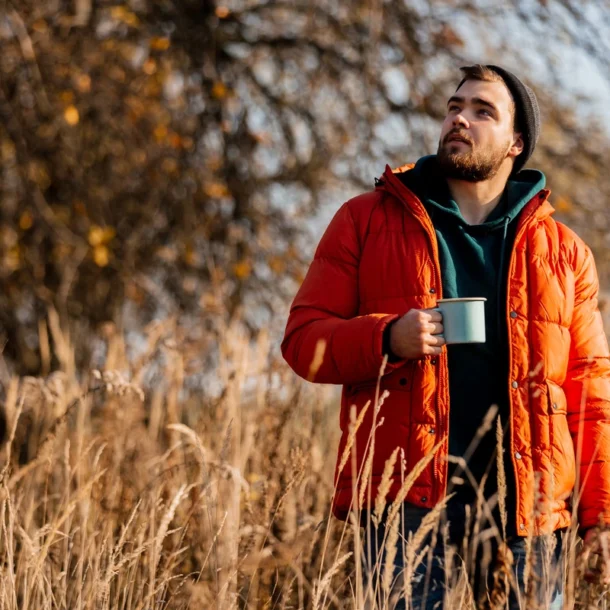
The Risks of Substance Use Disorders
Sometimes it feels like we are constantly learning about new risks of substance use disorders (SUDs). Despite all the information out there about these dangers, individuals are still developing SUDs. This may cause some of us to question what exactly has to be done in order to prevent more people from misusing substances. In addition to preventing others from developing SUD, we may also wonder how we can encourage people to seek treatment for their SUD. One thing to do is educate others on the risks of substance misuse.
Seeing a loved one struggle with addiction – or struggling with it ourselves – can be painful and upsetting. If untreated, SUD can take the lives of those you care about most, but each and every day is another opportunity to make a difference.
Types of SUD
Addiction and SUD are broad terms used to describe a number of addictions. This could be a heroin or cocaine addiction or alcohol use disorder (AUD). In either scenario, there are dangerous risks associated with any addiction. Addiction leads to harmful habits which are challenging to break.
Specialized treatment is the best way to break these harmful habits. You will learn to manage your symptoms in a safe environment with constant support. However, treatment may look slightly different depending on whether you struggle with alcohol or drug use.
Alcohol Addiction
AUD, or alcohol addiction, is when a person lacks control over alcohol consumption. An individual may continually drink for days or weeks on end, and if they try to stop, they experience withdrawal symptoms and intense cravings.
Signs and symptoms of alcohol addiction include:
- Memory loss or “blacking out” when drinking
- Loss of interest in hobbies or pleasurable activities
- Drinking despite adverse effects or the development of family, financial, and health
- Feeling uncomfortable in social situations without alcohol
- Loss of control and drinking more than initially intended
Drug Addiction
Similar to alcohol addiction, drug addiction is characterized by the lack of control over drug use. The National Institute on Drug Abuse (NIDA) defines drug addiction as a “chronic disease characterized by drug seeking and use that is compulsive, or difficult to control, despite harmful consequences.”
Signs that you or a loved one may be struggling with drug addiction include:
- Feeling the need to use drugs every day or multiple times a day
- Experiencing intense cravings
- Needing to use more of the drug to experience the same effect
- Doing things to obtain drugs, such as stealing or lying to your family
- Experiencing problems at work, school, or with other responsibilities
If you recognize any of these symptoms of an alcohol or drug addiction, seek treatment immediately. The potential long-term effects can be detrimental and even lead to death.
Treating SUD
As mentioned, drug and alcohol addiction treatment may vary slightly, but there are similar methods available for either.
- Medication-assisted treatment (MAT): Substance Abuse and Mental Health Services Administration (SAMHSA) states, “The use of medications, in combination with counseling and behavioral therapies, to provide a “whole-patient” approach to the treatment of substance use disorders. Medications used are approved by the Food and Drug Administration (FDA) and are clinically driven and tailored to meet each patient’s needs”.
- Residential treatment is another effective way to treat an alcohol or drug addiction. Inpatient residential treatment offers care and support, 24/7, offering a safe and sober environment conducive to achieving sobriety.
- Therapy is beneficial during and after treatment. Especially if your addiction developed from trauma or emotional distress, therapy helps you get to the root cause and grab the problem by the throat.
Individuals on the fence about seeking addiction treatment may consider it more upon learning about the potential risks associated with untreated substance use.
Risks of Substance Use
The risks of substance use vary depending on the substance. For example, excessive alcohol consumption can lead to:
- Alcohol poisoning
- The development of chronic conditions like heart and liver disease or a number of cancers
- Weakening of the immune system
- Memory loss and impaired cognitive functions
- Developing co-occurring mental disorders like anxiety and depression
Drug addiction also comes with several risks, including:
- Bacterial infections
- Vein damage
- Respiratory disease
- Withdrawal symptoms – which can include seizures, stroke, or other dangerous effects
- Overdose
These are just a few of the many risks associated with substance use. If you or someone you love is already exhibiting these issues, you must seek treatment immediately. Untreated SUD can be catastrophic and lead to death.
Seek Treatment and Avoid the Risks of Substance Use Today
We understand that seeking treatment for the first time can be scary, but consider the alternative. The risks of substance use are not worth a life of active addiction. In addition to specialized care and competent professionals, Healing Pines Recovery also offers a community of men striving for the same goal – recovery. We hope you will consider joining our community today.
There are a number of risks associated with untreated substance use disorders (SUDs). SUD is an umbrella term used to describe any addiction to alcohol or any number of drugs. Long-term, excessive alcohol and drug use can cause several issues. That includes the development of chronic physical conditions, such as cancer, heart disease, and a weakened immune system. It can also lead people to develop other co-occurring mental disorders, including anxiety, depression, or post-traumatic stress disorder (PTSD), to name a few. Treatment is available, but you must choose to seek it for yourself. Call Healing Pines Recovery at (720) 575-2621 today to join a community of men striving for one common goal – recovery.
Paul Leafstedt
Paul was born and raised in the beautiful state of Colorado. He went to college in California at CAL Poly Pomona, majoring in Mechanical Engineering. Being a person in recovery and always finding fulfillment in helping others succeed, Paul co-founded a treatment center in California with 4 other partners. Paul came back to Colorado to continue his journey in the field of addiction, and to share his vision for Healing Pines Recovery. “Colorado is such a magical place for me, its natural beauty and peace lend itself for the perfect environment to connect with yourself and others. Healing Pines is different, it’s real, you can feel it. What you see is what you get here. This is a safe place to dig deep and be vulnerable, to re-discover yourself, what the world has to offer and what you have to offer the world.”Begin Your Journey & Escape Addiction
The first step can be the hardest. Fill out the form or call us at (720) 575-2621. You will be connected with a Healing Pines Recovery specialist who can answer your questions and help you get started.
Let Us Help You
Speak to Someone Right Now







